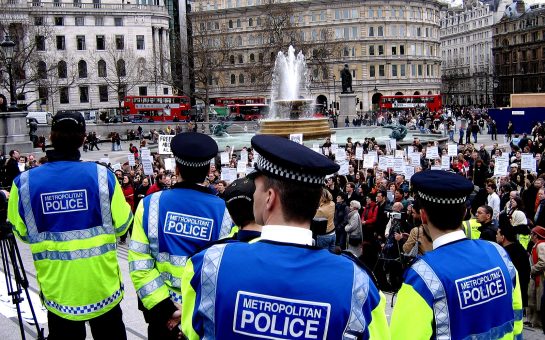By Rafi Benady
January 28 2020, 19.00
Follow @SW_Londoner
The number of permanent exclusions in Lambeth primary schools decreased by 50% over the course of a year.
Data collected by Lambeth Council and the Department for Education shows that there were 10 primary school exclusions in the 2016/17 academic year, and this halved to five in 2017/18.
School exclusions have become a subject of national debate in recent years as they recently reached a ten-year high.
In 2017/18 there were the most exclusions for nearly a decade – 7,900, a rise of three per cent on the previous year.
The same year saw the fewest exclusions in Lambeth over the past three years, and the second-lowest in the last six.
Despite the rate halving, Lambeth still had the highest rate of exclusions of all south London boroughs in 2017/18.
Lewisham had zero exclusions, Wandsworth had two, as did Southwark, and Merton had one.
Education experts say the drop could be for a number of reasons, ranging from Lambeth placing pressure on schools from Lambeth to reduce exclusion rates, to a simple increase in good behaviour.
Former Lambeth headteacher, Elena Mauro, 57 said: “That amount of data is obviously not long enough to make any long-term generalisations, but still it is very, very encouraging that they are halved.
“One simple explanation might be that Lambeth is putting more pressure on schools to decrease those numbers, so just by bringing attention to the problem might sharpen minds and sharpen up what schools are doing.
“It might also be that teachers and other staff might be getting more high quality training, so for example they might be thinking more about what things work for that child rather than looking at a child with just a ‘one size fits all’ approach, so each child needs a particular approach or range of approaches.
She said that it could also be that they [primary schools] are getting support from their local primary referral unit who are specialists in children with extremely challenging behaviour.
“It could also be that those children are benefitting from having short term placements at the primary referral unit, which serve both to give the school and the other children and staff a break, but also to put into place very specialised strategies that the primary referral unit can then help the school to implement once the child is back with very good support to integration from all.
“I would say that perhaps schools and parents are working in a maybe more positive way than sometimes in the past, so that the parent really, truly feels that the school is doing its upmost to keep the child in school, rather than looking for shortcuts as a route to exclusion.”
A current headteacher in Lambeth who wished to remain anonymous said there is now more awareness of the damage that exclusions can do to children.
She said: “I think there is more awareness of the impact of permanent exclusions on the lives of children, for example only one per cent of those excluded going on to gain 5 good GCSEs.
“There is also impact on mental health and over, half the prison population have been excluded. Also the proportion of black and ethnic pupils being excluded caused concern
“Schools have become more reflective, by setting out clear school wide vision and they have behaviour codes that reward positive behaviour.
“We also have more understanding of how poverty and other external factors affect pupils well-being: art therapies, nurture groups and counselling available in schools.
“Also working with outside agencies and shared good practice.”
However one parent has doubted whether the fall in exclusions would make any difference, and that schools have been over eager to exclude children..
Sarah Brooks’ son was excluded from a Lambeth primary school in the 2016/17 year.
Ms Brooks, 32, of Kennington said: “My son got expelled, or excluded as they’re calling it now in the 2016/17 year.
“I don’t really think he’s that badly behaved. But I think when they expelled him it was very unfair.”
Children who are excluded from school, be it primary or secondary, are sent to Pupil Referral Units (PRUs).
Sarah Brooks added: “I get that there’s all these OFSTED targets that schools are being forced to hit, but I honestly believe that people could be fooled by the rate dropping over the year is a sign of progress when it’s not, it’s a possible sign of kids like my son being left behind.
“And the schools benefit, because when they don’t exclude them and keep them in isolation, this isn’t recorded.”
These are schools for those who have been, or are on the cusp of being expelled from mainstream education.
In an interview with the BBC, a child at a PRU reported how they are like “prisons”, and it was at the PRU where she was groomed into joining a gang.
Lambeth Council were contacted for comment.




